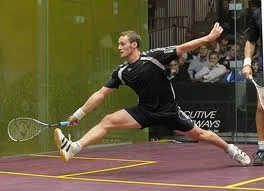I have heard many arguments about who is the world's best athlete. To be honest, most of them are completely idiotic. But let's face it, if you ask a stupid question you get a stupid answer. And that's what I have done here, because I enjoy the occasional bar room debate.
Read MoreI have made the claim several times on this blog that quality of movement is primarily determined by its efficiency. In fact, I have stated that "efficiency is the "essence of coordination" and that the best movement is always the most efficient movement.
Read MoreFatigue is a Brain-Derived Emotion that Regulates the Exercise Behavior to Ensure the Protection of Whole Body Homeostasis. The basic idea is that human exercise capacity is not limited by a failure of the body, but is instead regulated by the brain to ensure that such a failure does not occur. Here is a brief summary of some of the highlights of the article.
Read MoreIn the previous post I discussed the idea that flexibility is generally overrated as a quality that promotes sports performance. In particular, I argued that: most sports do not involve extreme ranges of motion; most elite athletes in fact have only average flexibility; and quality of motion at a joint is usually far more important than quantity of motion. That being said, it is definitely the case that in many sports, some very important events happen near the end ranges of motion and this may require some very specific preparation. For example, in my own sport, squash, players are called upon to repeatedly strike the ball with full force while in a fully stretched out deep lunge position. While most people have the flexibility to get into this lunge, it does take quite a bit of training to be able to get there quickly and then hit a ball with maximum force. In this post I’ll share some thoughts on how to improve power, speed or skill at end ranges of motion.
Read MoreIn the Feldenkrais movement class I was teaching the other night I had an interesting discussion with a student who is a parkour instructor at Seattle's Parkour Visions gym. One of the fundamental skills in parkour is jumping with power and landing jumps safely.
Read MoreI just read the abstract of a study cited by Chris Highcock at Conditioning Research. (By the way if you are interested in either strength training or hiking, check out Chris' excellent new e-book called Hillfit.) It is one of many studies that show that muscular fatigue impairs coordination. Because coordination is essentially a mental skill, this is an interesting flip side to another study I recently blogged about which shows that working on math problems makes you physically weaker.
Read More
